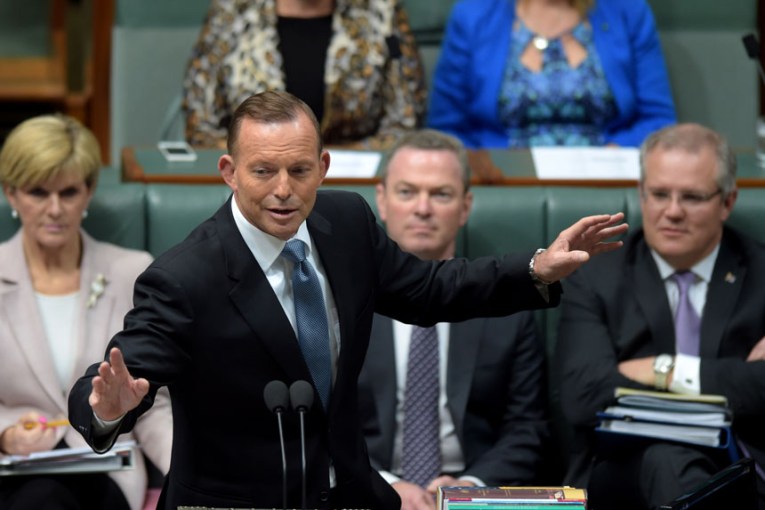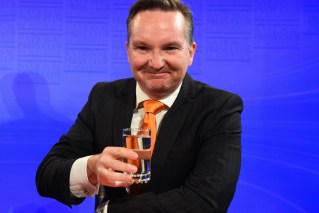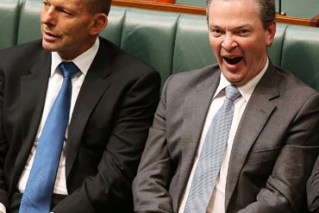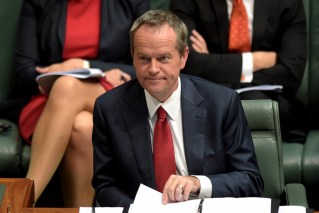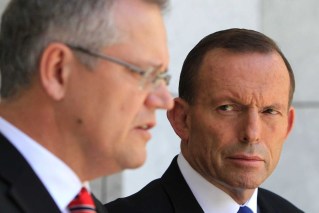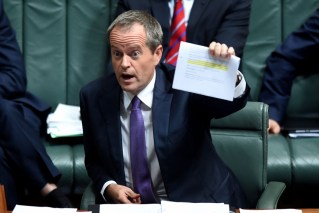Govt says no more ‘double dipping’ for parents
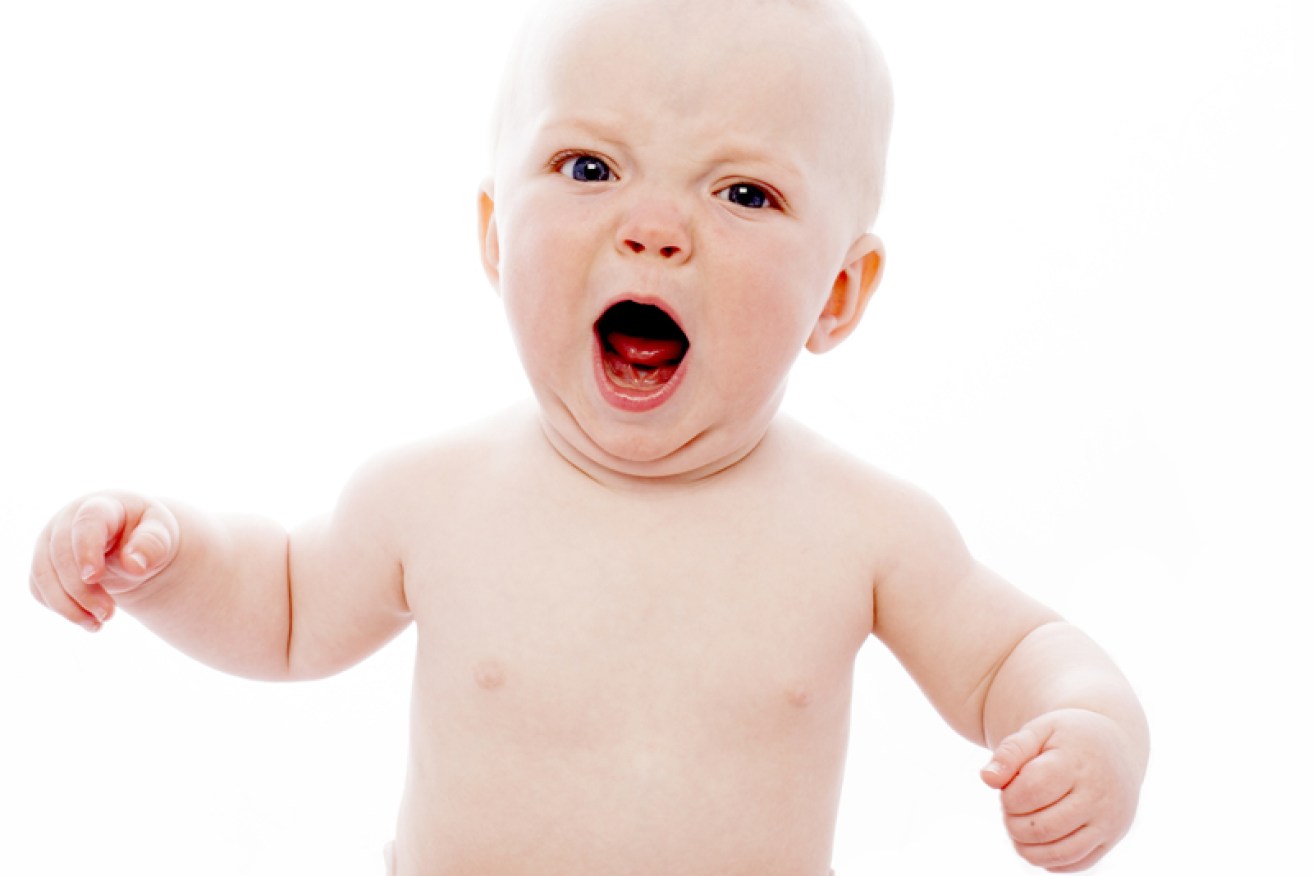
Most families will receive more help with childcare costs under the Abbott government’s major budget initiative, but the boost will come at the expense of some new parents and families with one parent staying at home.
The Federal Government wants to encourage parents to do more paid work and has unveiled a plan aimed at making childcare more affordable.
Under the changes, families with household incomes up to $165,000 will be better off by $30 a week and even those earning more than $185,000 will receive more assistance.
• Funding announced for disabled, rural
• Frightening deficit prediction
• Doctor issues warning over water beads
Prime Minister Tony Abbott said the measures would lead to 240,000 families increasing their hours in paid employment, including almost 38,000 jobless families.
The changes explained
♦ A new single means-tested Child Care Subsidy set to begin on July 1, 2017 to replace the Child Care Benefit, Child Care Rebate and Jobs, Education and Training Child Care Fee Assistance programs.
♦ Childcare system receives shake-up under new Government plan to support low income families.
♦ Families earning up to $65,000 will receive 85 per cent of the childcare cost per child, or a designated benchmark price, whichever is lower. That will reduce to 50 per cent for families with incomes of $170,000 and above.
♦ Hourly benchmark prices will be $11.55 (long day care), $10.70 (family day care), $10.10 (out-of-school hours care) and $7.00 (in-home care nanny pilot program due to begin in January 2016).
♦ There will be no cap on subsidies for families with an income below $185,000, while those who earn beyond that will receive an increased cap of $10,000 per child, up from $7,500.
♦ Subsidy is subject to new activity test for up to 100 hours of subsidised care per child, per fortnight, paid directly to providers.
♦ Up to 24 hours help will also be offered to families with incomes less than $65,000 who do not meet activity test requirements.
♦ The ‘no jab, no play’ policy remains with all childcare subsidies linked to immunisation requirements.
♦ Policy to cost $3.5 billion over four years, funded by cuts to Families Tax Benefit payments stuck in the Senate.
Getting parents back to work
“We are changing the economics of going back to work so that we will get more work, so that families will have more opportunities to increase their income,” he said.

Mr Abbott said the measures would lead to 240,000 families increasing their hours in paid employment. Photo: Getty
But the extra spending of $3.5 billion over four years is contingent on the Senate passing cuts in last year’s budget to Family Tax Benefits, including stopping payments entirely to single-income families when children turn six.
“Unless we offset this new spending it cannot go ahead,” Mr Abbott said.
Social Services Minister Scott Morrison said the proposals would have to “wash their own face fiscally”.
“We are not going to tax Peter, Paul and Mary to support new investment,” he said.
It sets the scene for more high-stakes negotiations with the crossbench in the Senate, with Labor ruling out any support for the cuts.
“Children don’t get cheaper when they turn six,” Shadow Treasurer Chris Bowen told ABC’s Insiders.
“It just makes no sense. We didn’t support it then, we won’t be supporting it now, we won’t be supporting these cuts in the future.”
Stay-at-home parents with a household income of over $65,000 will also lose all childcare subsidies.
Greens Senator Sarah Hanson-Young has slammed the tactic as “blackmail” and is worried about the tougher work activity test to get subsidised childcare.
No more ‘double dipping’ says Hockey
Under the new regime parents must do eight hours a fortnight of work, study or training to qualify for any childcare support.
“If they really want mums to be able to ease themselves back into the workforce they’ve got to be given those guaranteed childcare support places upfront,” she said.
“How do you go to a job interview if you’ve got nowhere to put your child while you’re there?”

Treasurer Joe Hockey reads a book to children during a kindergarten visit. Photo: AAP
New parents will also lose out in the families package, with the Government cutting access to the taxpayer funded, minimum wage paid parental leave scheme for those who can access maternity leave through work.
Treasurer Joe Hockey, who described it as “patently unfair” and “double dipping”, said the change will save nearly $1 billion over the next four years and affect thousands of people.
It means primary carers – usually women – will not be able to use the payments to stay at home with their new babies for an extra 18 weeks.
The change is a dramatic reduction from the Prime Minister’s once-signature PPL policy, which had promised full wage replacement for women up to $50,000 plus superannuation for six months – until it was dropped by Mr Abbott in February.
“If you are serious about fairness, you should support this change,” Mr Abbott said.
Families spokeswoman Jenny Macklin has slammed the Government for the parental leave cut.
“This really does just show, this Government does not understand the pressures families are under,” she said.
Childcare groups call for detail, immediate help
Early Childhood Australia, the peak early childhood lobby group, has welcomed the “historic reform” but said the change to parental leave was a “real pity”.
“That’s effectively going to reduce the amount of time that parents with a new baby can afford to spend with that baby,” chief executive Samantha Page said.
Ms Page said that while the package announced on Sunday makes child care more affordable for the majority of families, some children could be excluded from the system.
“We are concerned about the families who have, for one reason or another, not [been] able to have both parents participating in the workforce, and I think the suggestion that’s always a choice is a bit misleading,” she said.
Ms Page earlier sounded a warning about the activity test.
“We are concerned that workforce participation objectives have been placed ahead of the interests of children,” she said in a statement.
“It is often the children whose parents aren’t working that benefit the most.”
-ABC
